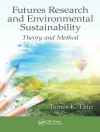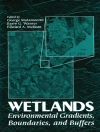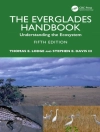This book includes over three hundred and seventy-five short papers presented during the second EMCEI, which was held in Sousse, Tunisia in October 2019. After the success of the first EMCEI in 2017, the second installment tackled emerging environmental issues together with new challenges, e.g. by focusing on innovative approaches that contribute to achieving a sustainable environment in the Mediterranean and surrounding regions and by highlighting to decision makers from related sectors the environmental considerations that should be integrated into their respective activities. Presenting a wide range of environmental topics and new findings relevant to a variety of problems in these regions, this volume will appeal to anyone working in the subject area and particularly to students interested in learning more about new advances in environmental research initiatives in view of the worsening environmental degradation of the Mediterranean and surrounding regions, which has made environmental and resource protection into an increasingly important issue hampering sustainable development and social welfare.
Table of Content
Efficiency of hybrid process of coagulation/flocculation followed by membrane filtration for the treatment of synthetic vegetable oil refinery wastewater.- Fe/clay composite as catalysts for textile wastewater treatment.- Iron removal from groundwater by adsorption process onto activated carbon obtained from Pinus halepensis cone wastes.- Synthesis and characterization of activated carbon from Pinus halepensis cone wastes; Adsorption Prediction as a function of some physicochemical characteristics of activated carbons.- ADSORPTION OF INDUSTRIAL DYE Bz R FROM AQUEOUS SOLUTION USING LOCAL MODIFIED CLAY.- Adsorption-desorption of Methylene blue by bentonite from aqueous solution.- Removal of dispersedye from aqueous solution by bottom ash.- Experimental study of the removal of Rhodamine B from aqueous solution by adsorption onto coffee waste.- Electrochemical impedance spectroscopy and adsorption study of carbon steel in 1M HCl solution containing 2-(2-Methoxybenzylidene) Hydrazine-1-Carbothioamide.- Adsorption efficiency of graphene oxide towards cyanine dyes with different alkyl chain lengths.- Cu(II) ions removal on functionalized cellulose beads from Tunisian almond (Prunus dulcis) shell.- Optimization of Cr(III) removal from a synthetic solution and a real tanning effluent by powdered marble using 3-level Box-Behnken design: thermodynamic, toxicity and regeneration studies.- Dynamics Modelling of Multicomponent Metal Ions Removal onto Low Cost Buckwheat Hulls.- Local Materials and Solid Waste (Sawdust) Valorization in The Treatment of Industrial synthetic water field.- Cationic dye removal using alginate-organobentonite composite beads.
About the author
Achraf GHORBAL is the Vice-Director of the Higher Institute of Applied Sciences and Technology of Gabes – University of Gabes – Tunisia. Dr. Achraf GHORBAL obtained his M.Sc. in Processes and Materials Engineering (2003) and Ph.D. in Chemistry of Materials (2006) from the University of Haute Alsace – Mulhouse – France. Then, he joined in 2007 the French Atomic Energy Commission (Commissariat à l’énergie atomique) in Saclay – France, as a post-doctoral fellow. In 2008, he was hired as Assistant Professor and then promoted to Associate Professor in Materials Sciences in 2015 at the University of Gabes – Tunisia. His research focuses on wastewater treatment, biopolymers, eco-materials and bio-composites for environmental applications. Dr. Achraf GHORBAL authored and co-authored over 40 scientific papers (peer-reviewed papers, books, book chapters, and patents), coordinated as a principal investigator research and educational projects financed by national or international funds (e.g. Erasmus+ CBHE promoted by the European Commission Agency; Indo-Tunisian joint project), and serves as peer reviewer for several high-impact journals (e.g. Waste Management; Environmental Science and Pollution Research). His work has been internationally recognized by several prestigious distinctions such as the Springer Best Reviewer Award (2017, Euro-Mediterranean Conference for Environmental Integration). Since 2019, Dr. Achraf GHORBAL is a Managing and Developmental Editor of the Euro-Mediterranean Journal for Environmental Integration – a Springer Nature journal.
Dr. Sudip Chakraborty, a Doctorate in Chemical Engineering from Italy. Currently working at Laboratory of Transport Phenomena and Biotechnology, University of Calabria, Italy. He has successfully passed Abilitazione Scientifica Nazionale-full professor in sector – ING-IND 24 and also adjunct professor at Mindanao State University, The Phillipines. Dr. Chakraborty delivered several Keynote/Invited lectures and presentations in many international conferences all over the world. His major field of interest are membrane separation, plasmonic nanoparticle, composite materials, energy and process intensification.
Dr. Chakraborty with h-index-23, published more than 95 research publications in international SCI indexed journals/book chapter as well as more than 75 conferences. He has edited books and book chapters apart from several special issues in SCI indexed journals. Dr. Chakraborty also chaired technical sessions in many International Conference. He is a member of different professional bodies like European Membrane Society, Finnish Catalysis Society, and American Oil Chemists Society are some of them. He was also a visiting researcher at Massachusetts Institute of Technology (MIT), Boston, USA and Yale University, New Haven, Connecticut. Dr. Chakraborty is an Associate editor of Groundwater for Sustainable Development (Elsevier Publication) as well as Chief Editor and Journal Development Editor of Euro Mediterranean Journal of Environmental Integration (Springer-Nature). Apart from that he also edited Special Issues from Springer, Elsevier and MDPI journals.
H. I. Chaminé is a skilled Geologist and Professor of Engineering Geosciences at School of Engineering (ISEP) of the Polytechnic of Porto, with over 29 years’ experience in multidisciplinary geosciences research, consultancy and practice. He studied geological engineering and geology (BSc, 1990) at the Universities of Aveiro and Porto (Portugal), respectively. He received his Ph D in geology at the University of Porto in 2000 and spent his postdoctoral research in applied geosciences at the University of Aveiro (2001-2003). In 2011 he received his Habilitation (DSc) in geosciences from Aveiro University. Presently, he is Head of the Laboratory of Cartography and Applied Geology (LABCARGA|ISEP), Senior Researcher at Centre Geo Bio Tec|U.Aveiro and Centre IDL|U.Lisbon, as well as belongs to the executive board of the MSc+BSc Geotechnical and Geoenvironmental Engineering (OE+EUR-ACE Label) and the Department of Geotechnical Engineering (ISEP). Currently, he belongs to the board of the Portuguese Geotechnical Society (SPG) and International Association of Hydrogeologists – Portuguese Chapter. He was a board member of the APGeom – Portuguese Association of Geomorphologists (2009–2013). Before joining academy, he worked over a decade in international projects for geoenvironment, mining, geotechnics and groundwater industry and/or academia. He was consultant and or responsible over 70 projects of rock engineering, applied geology, hydrogeomechanics, slope geotechnics, mining geology, exploration hydrogeology, hard-rock hydrogeology, water resources, urban groundwater and applied mapping (Mozambique, Portugal, and Spain). He has been co-authored over 200 publications in indexed journals, conference proceedings/full papers, book chapters, technical and professional papers. He co-edited over 13 special volumes, as well as is presently evolved in editing themed issues for 3 international journals. He has a wide activity as a referee for several international journals. He served as invited Expert Evaluator of Bologna Geoscience programme for DGES (Portugal) and Scientific Projects Evaluation for NCST (Kazakhstan) and NRF|RISA (South Africa), as well as Coordinator of ‘Geology on Summer/Ciência Viva’ programme at ISEP for geosciences dissemination. He has been also active with teaching and supervising of many Ph D, MSc and undergraduate students. He has been on the editorial board, among others, of Arabian Journal of Geosciences (SSG+Springer), Hydrogeology Journal (IAH+Springer), Geotechnical Research (ICE), Springer Nature Applied Sciences (Springer), Mediterranean Geoscience Reviews (Springer), Geosciences (MDPI), Revista Geotecnia (Portugal), and Geología Aplicada a la Ingeniería y al Ambiente (Argentina). Currently, is co-chair of the International Conference “Geoethics and Groundwater Management” (IAH+IAPG, Porto, May 2020) and in scientific committee of the 3rd International Workshop on Natural Hazards – NATHAZ’21 (Terceira Island, Azores, May 2021).
Prof. Barbieri holds a degree in Geological Sciences (1994) and a Ph.D. degree in Earth Sciences (1998) from Sapienza University of Rome, (Italy). He is currently Associate Professor of Environmental Geochemistry and Hydrogeochemistry at Sapienza University of Rome (Italy). His current research focusses the application of the geochemistry methodologies in the characterization of environmental problems. In particular he studied the distribution of elements and isotopes in the Earth systems with emphasis on the use abundances and isotopic ratios in defining the interaction between different reservoirs (mantle, crust, atmosphere ad hydrosphere). He have alsorelated interests in environmental geochemistry and Health studying the role of toxic trace elements (e.g. As, B and Hg), deriving from hydrogeochemical anomalies of natural origin, on water quality. Environmental Advisor (Hydrogeochemistry) for the International Project (2016-2019) SECOSUD II – Conservation and equitable use of biological diversity in the SADC region. The project is financed by the Italian Agency for Development Cooperation and implemented through Eduardo Mondlane University, South African National Park and Sapienza University of Rome. Scientific Coordinator (2014-2016) for the Geochemical model of the Vico Lake (Central Italy), with particular regard to environmental arsenic. Client: Regional Agency for Environmental Protection of Lazio. Scientific coordinator for the Water Unit of the International Project (2012-2014): Institutional Support to the management of Protected Areas in Albania funding from the International Union for Conservation of Nature (IUCN).












